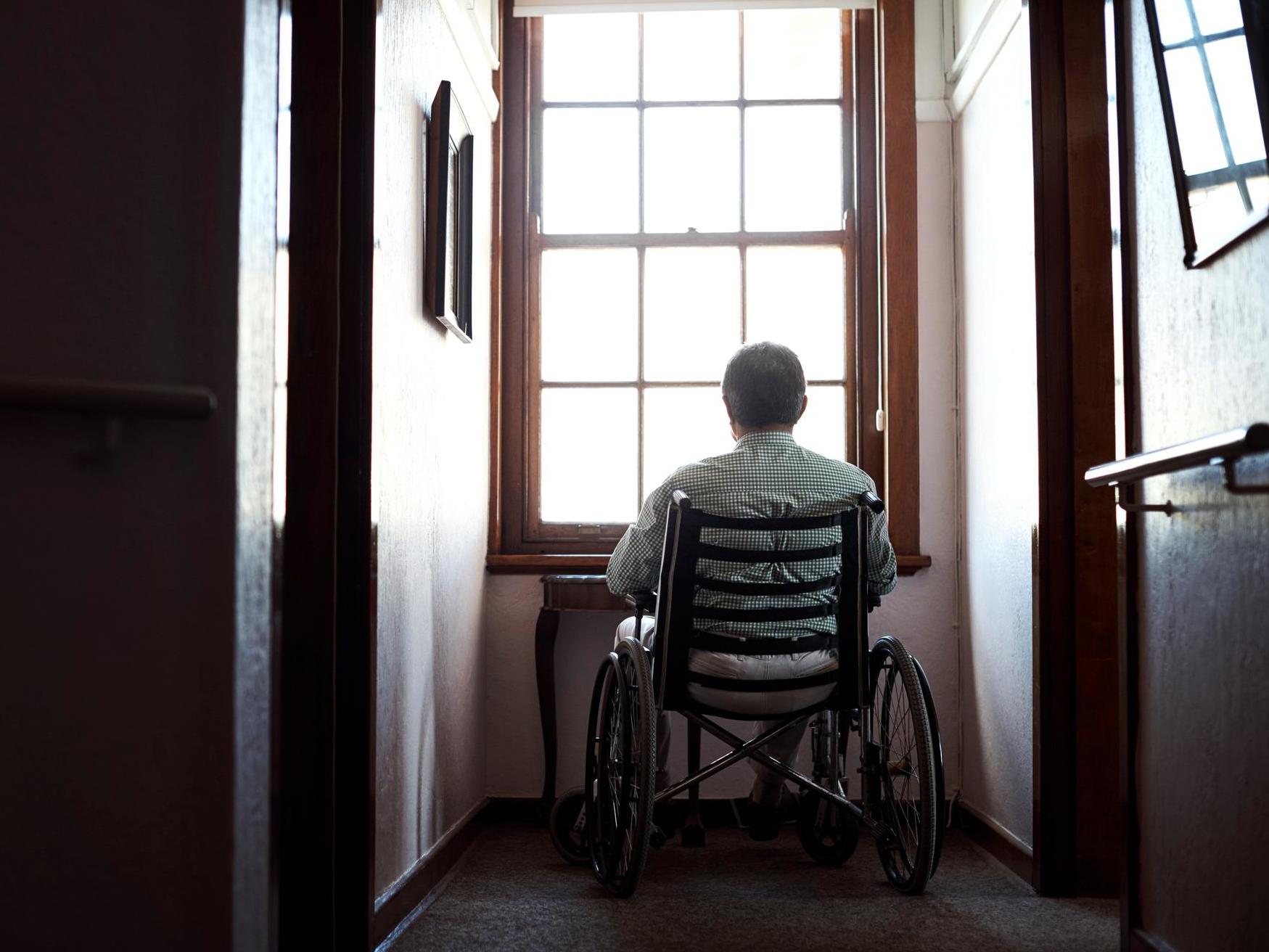Disability benefit claims plummet during lockdown amid fears vulnerable unable to access support
Dramatic reduction in claims prompts concern disabled people struggling to navigate benefits system due to reduced contact with charities during pandemic

Your support helps us to tell the story
From reproductive rights to climate change to Big Tech, The Independent is on the ground when the story is developing. Whether it's investigating the financials of Elon Musk's pro-Trump PAC or producing our latest documentary, 'The A Word', which shines a light on the American women fighting for reproductive rights, we know how important it is to parse out the facts from the messaging.
At such a critical moment in US history, we need reporters on the ground. Your donation allows us to keep sending journalists to speak to both sides of the story.
The Independent is trusted by Americans across the entire political spectrum. And unlike many other quality news outlets, we choose not to lock Americans out of our reporting and analysis with paywalls. We believe quality journalism should be available to everyone, paid for by those who can afford it.
Your support makes all the difference.The number of people applying for disability benefits has plummeted during the coronavirus pandemic, prompting fears that disabled people could be struggling to access the documents and support to help them claim financial assistance.
Disabilities minister Justin Tomlinson told MPs on Thursday that on average 5,000 people were currently claiming disability benefits per week, compared with around 51,000 – 13,000 per week – in the month of January, marking a drop of 62 per cent.
It is currently unclear as to why there has been such a considerable drop in claims, but Mr Tomlinson admitted that it could be linked to increased difficulty for people to get help from charities with the application process.
Speaking to the Work and Pensions Committee on Thursday, he said: “We’ve seen a significant drop in the number of new claimants. We’re not totally sure why. In January, there were 51,000 new claimants in the month. At the beginning of March it was around 12,000 a week, that’s now down to 5,000 a week as of last week.”
When asked by Conservative MP Dr Ben Spencer whether he was worried about this drop, and whether vulnerable people could not be applying because they are finding it more difficult to obtain medical evidence or access support from charities during the pandemic, he said it was a “very fair question”.
Mr Tomlinson added: “I’m doing a lot of engagement with the major stakeholders and getting them to talk to their members to find out what are the reasons behind why we’ve dropped by half.”
He admitted that charities that usually play a vital role in helping disabled people to navigate the application processes were seeing a “significant drop in income”, indicating that this could also be contributing to a reduction in applications.
Matthew Harrison, parliamentary co-chair of the Disability Benefits Consortium, told The Independent the drop in new applications for disability benefits was "deeply troubling" and said he feared this reflected the "difficulty disabled people were facing accessing support and navigating the benefits system during the pandemic".
He added: "The department should urgently investigate the reasons for this sudden drop and provide better guidance that disability benefit applications are open and of the new flexibilities that have been introduced such as a relaxation requirements for medical evidence."
Mr Tomlinson confirmed during the evidence session that disability claimants who were due for a reassessment in the next three months would get their benefit extended by six months. For those whose condition had deteriorated, they would still be able to request a reassessment, which would be carried out by telephone and paper-based reviews, he said.
The minister said the DWP recognised that there were “increasing challenges [in obtaining] medical evidence” at the moment, and that caseworkers were subsequently relying “very much on the claimant’s case as they explain it”.
He added that these changes in response to the Covid-19 emergency were “actually very beneficial” for the department, because it had “forced” it to make changes that it had planned to trial as part of a review of the assessment process aimed at reducing the “anxiety” it causes claimants.
“I think when we return to normal state, there will be some valuable lessons about how we can better use medical evidence, oral evidence from claimants, and increase the proportion of cases that are done with paper-based reviews,” Mr Tomlinson said.
“There are a lot of very valid lessons to be learnt out of this. I think we will see a greater proportion of claims going forward that can be done by telephone or paper-based reviews. That was the thinking behind the future plans for the integrated service.”
Join our commenting forum
Join thought-provoking conversations, follow other Independent readers and see their replies
Comments